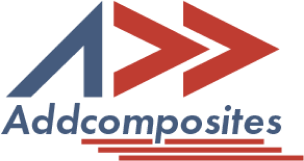


.png)



The global composites manufacturing industry has long faced a critical challenge: the prohibitive cost and complexity of advanced automation technologies. Traditional automated fiber placement (AFP) systems, essential for producing high-performance composite structures, have historically been accessible only to large aerospace corporations with multimillion-dollar budgets. Addcomposites’ AFP-XS system emerges as a transformative solution, breaking down these barriers through innovative engineering, flexible business models, and smart ecosystem integration. By combining production-ready capabilities with unprecedented affordability, this technology is reshaping the economic landscape of composite manufacturing, enabling small and medium enterprises (SMEs) across aerospace, marine, energy, and urban mobility sectors to compete on a global scale.

The AFP-XS system operates on a subscription model starting at €3,500 per month, with an option to purchase—a radical departure from traditional AFP systems that required €1-5 million upfront investments2 4. This pricing strategy directly addresses the capital constraints of SMEs, allowing them to convert operational expenses into scalable production capabilities. Compared to legacy systems that carried €50,000-100,000 annual operational costs, the AFP-XS reduces total cost of ownership by 80-90% through its modular design and robotic compatibility4 11.
Unlike conventional AFP solutions requiring dedicated production cells, the AFP-XS transforms standard industrial robots from Kuka, ABB, Kawasaki, Yaskawa, Fanuc and other gantry systems into precision fiber placement systems1 6. This retrofit approach leverages SMEs’ existing automation investments—a 2024 study showed 73% of target manufacturers already owned compatible robotic arms3. The system’s compact footprint (1.2m × 0.8m base unit) enables integration into production environments as small as 50m², critical for space-constrained SMEs10.
Through adaptive toolpath optimization in AddPath software, the AFP-XS achieves 85-92% material utilization rates across thermoset, thermoplastic, and dry fiber applications—a 35% improvement over manual layup processes6. The system’s insitu process controls operate from 50mm/s for complex components to 1m/s for simple structures, allowing SMEs to balance precision and throughput12. Real-world implementations demonstrate 40% faster cycle times compared to manual methods, with one automotive SME reporting €220,000 annual labor cost savings11.

The 2025 integration of Heraeus Noblelight’s humm3® flash lamp heater and Laserline laser with optics to compact AFP-XS system enables high-speed placement of PEEK and PEKK tapes at 400-480°C, achieving under 2% porosity and high interfacial bonding strength in aerospace-grade composites7 8. The closed-loop thermal control system enables varied option for faster speed and or higher safety thus creating a platform for thermoplastic composites production for the SME. 8 10.

Addcomposites’ collaboration with Groupe CTT has yielded dry fiber placement speeds of 0.8-1.2m/s through electrostatic tackification, enabling mass production of wind turbine spars and automotive chassis components3 11. The system’s ultrasonic trimming module reduces edge fraying to <0.2mm, meeting aerospace tolerances without secondary machining10. A marine industry case study showed 55% weight reduction in hydrofoils using dry fiber AFP versus manual wet layup11.

The AFP-XS’s dual AFP/filament winding capability allows single-machine production of complex geometries like Type IV hydrogen tanks. By switching from AFP to filament winding mode via AddPath, manufacturers can lay fuselage panels at 250mm/s and wind cylindrical structures at high RPM without cell reconfiguration912. This multifunctionality increases equipment utilization rates to 85-90%, while saving onto capital equipment of filament winding system. 4 11.

The 2025 partnership with Effman delivers turnkey manufacturing cells combining AFP-XS with grinding, drilling, and inspection modules for 1/5th the cost of traditional automated cells3 6. These pre-configured solutions reduce integration time from 6-8 months to <4 weeks, with plug-and-produce functionality enabling production within 48 hours of installation3 7.

Addcomposites’ AddPath software creates a federated learning ecosystem where 50+ installed systems share process data while maintaining IP privacy. Machine learning models trained on 12,000+ layup cycles have reduced defect rates from 5.2% to 0.8% across the network since 20231 4. SMEs gain immediate access to optimized parameters for new materials—reducing R&D time from 6 months to <2 weeks11.
Collaborations with material suppliers like Texonic have established regional dry fiber tape production hubs, cutting material costs by 40% versus aerospace-grade prepregs6 8. The AFP-XS’s compatibility with 5- 50 mm wide tapes enables SMEs to use cost-effective non-certified materials for non-critical components while maintaining 95% of structural performance911.
In addition to standard robotic safety protocol, integrating singularity, overspeed, acceleration, and sudden turn warnings into AddPath enhances safety, especially for sudden movements. Simulated defect warnings could further improve operator responses by mimicking potential issues. Our safety PLCs in the robotic system can help meet the stringent safety requirements needed for automated operation, ensuring comprehensive safety measures for both manual and automated modes.
Addcomposites’ Certified Training Network is launching an upcoming 80-hour training program across 15 technical colleges. The curriculum combines AddPath simulations with hands-on training, enabling workers with basic composites experience to achieve production readiness in 2-3 weeks.
French SME Compositadour reduced wing spar prototype costs by 65% using AFP-XS with recycled carbon fiber, achieving 98% dimensional accuracy versus manual methods7 8. The integrated thermal camera detected 92% of voids in real-time, eliminating post-cure inspection10 11.
A Quebec-based manufacturer produces 150 electric bus roofs monthly using two AFP-XS cells, achieving 8kg/m² areal weight with continuous fiber reinforcement3 6. The digital twin system optimized fiber paths for 30% improved impact resistance versus aluminum counterparts11.
A Bayonne shipyard automated production of 25m yacht hulls using dry fiber AFP, reducing labor hours from 1,200 to 300 per unit. The humm3® heater enabled in-situ consolidation of PET thermoplastic skins, cutting post-processing time by 70%7.


Addcomposites’ AFP-XS represents a paradigm shift in composite manufacturing accessibility. By 2026, the company projects 200+ installations worldwide, potentially enabling 15,000 SMEs to adopt automated fiber placement. Continued development in three key areas will drive further democratization:
As these innovations mature, the AFP-XS ecosystem will continue lowering barriers to advanced composite manufacturing, empowering SMEs to lead the transition toward lightweight, sustainable industrial solutions. The technology’s success demonstrates that through smart engineering and collaborative business models, even the most capital-intensive manufacturing processes can become accessible drivers of inclusive economic growth.